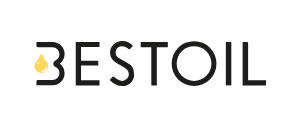New quality standards in WOROL rapeseed oil production

News
10 minutes to read
New quality standards in WOROL rapeseed oil production
New quality standards in WOROL rapeseed oil production – what does today’s food industry demand from oil producers?

In recent years, the quality of rapeseed oil has become one of the key factors influencing the overall quality of food products. At the same time, legal regulations have tightened, consumer expectations have risen, and retailers are applying more pressure than ever before. In order to remain competitive and credible, oil producers must not only meet strict quality standards but also implement technological innovations and operate in an environmentally responsible manner.
New quality – new challenges
Rapeseed oil is used in the production of margarines, mayonnaise, baked goods, ready meals, snacks, and many other food products. For food manufacturers, the following qualities of oil are essential:
- oxidative stability,
- microbiological purity,
- neutral taste and aroma,
- consistency in physicochemical parameters,
- absence of pesticide and heavy metal residues.
Meeting these standards requires the use of cutting-edge technologies and continuous process monitoring, from the seed stage to the final product.
Standards and certifications that matter
A growing number of buyers require specific quality and safety certifications from suppliers. The most commonly expected include:
- HACCP – Hazard Analysis and Critical Control Points;
- ISO 22000 / FSSC 22000 – food safety management;
- IFS Food / BRCGS – international standards for the food industry.
These systems enable full traceability of raw materials, risk control, and alighment with the expectations of clients in the food and retail sectors.
Modern technologies in the service of quality
Leading rapeseed oil producers today invest in:
- cold pressing and physical refining,
- filtration using bleaching earth and activated carbon,
- inline quality control systems,
- process automation and production data monitoring.
This approach not only preserves valuable components (such as tocopherols) but also ensures a final product of exceptional durability and stability.
Environment and sustainable production
Today’s quality standards also encompass environmental responsibility. Oil producers implement:
- process water recycling,
- heat recovery,
- circular waste management,
- Environmental, Social, Governance (ESG) strategy.
This is not just about meeting formal requirements, but also about building a credible reputation as a sustainable and responsible supplier.
What does this mean for the food industry?
New quality standards mean greater process safety for food manufacturers, fewer complaints, an improved image among consumers, and compliance with the quality policies of retail partners. Delivery stability, flexible packaging, and tailoring oil specifications to production requirements are now just as important as the raw material’s quality itself.
Modern rapeseed oil production is about more than just technology – it’s about trust, responsibility, and a shared understanding of goals with the end user. These values are what build strong, long-term relationships in today’s food industry.
Would you like to learn more about quality standards and opportunities to work with an experienced rapeseed oil producer?
Get in touch – we’re here to answer your questions.
Stay up to date.
Industry news and insights
At WOROL, we keep our finger on the pulse, staying informed about both our business and the broader market. Catch up on the latest news from the world of oilseed rape.
Vegetable oils have a wide range of applications. They’re healthier and more versatile than you might think. Stay up to date with our industry insights.
Frequently asked questions
Browse our list of frequently asked questions or
get in touch using the contact form.
What are the main properties of rapeseed oil?
Rapeseed oil has a neutral taste and a high content of unsaturated fats. It is rich in monounsaturated fatty acids (omega‑9) and also contains polyunsaturated fatty acids such as omega‑3 and omega‑6. Its high smoke point makes it ideal for frying.
Rapeseed oil obtained from double low (00) varieties is a versatile product, suitable for both culinary and industrial use, and is considered the healthiest vegetable oil for human consumption.
Does rapeseed oil contain omega‑3 fats?
Yes, rapeseed oil contains omega‑3 fatty acids, mainly alpha-linolenic acid (ALA), which supports the health of both the heart and the brain. It also plays an important role in the function of nervous tissue.
What are the advantages of rapeseed oil compared to other vegetable oils?
Rapeseed oil has one of the lowest saturated fat contents among vegetable oils, making it a healthy choice. It also offers an ideal ratio of omega-6 to omega-3 fatty acids, which is beneficial for cardiovascular health. Other benefits of rapeseed oil include:
- a high content of oleic acid, which helps lower blood cholesterol, particularly harmful LDL;
- a balanced 2 : 1 ratio of essential polyunsaturated fatty acids: linoleic acid from the omega-6 family and linolenic acid from the omega-3 family;
- the lowest content of saturated fatty acids, which are undesirable in the human diet;
- the presence of active substances such as tocopherols, phytosterols, carotenoids, and polyphenolic compounds, which have antioxidant properties, protect the body against free radicals, and reduce LDL cholesterol levels.
Does rapeseed oil contain cholesterol?
No, rapeseed oil, like other vegetable oils, does not contain cholesterol.
What is the energy value of rapeseed oil?
The energy value of rapeseed oil is approximately 884 kcal per 100 g.
What can rapeseed oil be used for?
Rapeseed oil is widely used in the kitchen for frying, baking, salads, and as an ingredient in sauces. In the cosmetics and pharmaceutical industries, it is used in skincare products.
In addition, rapeseed oil is used in the production of: methyl esters of fatty acids, which are components of biofuels; industrial oils; lubricants; hydraulic transmission fluids; oil-based paints and varnishes; printing inks; oleochemicals; and linoleum.
Is rapeseed oil suitable for frying?
Yes, rapeseed oil is perfect for frying. It has a high smoke point (240 °C), which allows for safe frying at higher temperatures, and it contains a high level of monounsaturated fatty acids. As a result, it retains its properties during frying. Thanks to its high tocopherol (vitamin E) content, rapeseed oil is highly stable, making it resistant to high temperatures.
Can rapeseed oil be used in baking?
Yes, rapeseed oil can be used for baking, due to its high smoke point, neutral taste, and health benefits.
Can rapeseed oil be used in cosmetics?
Yes, rapeseed oil is used in skin and hair care cosmetics for its moisturising and regenerating properties.
Thanks to its antioxidant and beta-carotene content, it rejuvenates and brightens the skin. It prevents excessive dryness and soothes symptoms of conditions such as psoriasis.
What industrial uses does rapeseed oil have?
Rapeseed oil is used in the production of biofuels, industrial lubricants, and as a raw material for oleochemicals.
What is the rapeseed oil pressing process like?
The pressing process involves grinding the rapeseed, heating it, and pressing out the oil. It is also possible to carry out the pressing process without using high temperatures, which is known as cold pressing.
What is the difference between cold-pressed and refined rapeseed oil?
Cold-pressed oil contains more nutrients and retains its natural flavour and aroma. Refined oil is cleaned of impurities, making it last longer and giving it a mild, neutral taste.
What is the difference between unrefined and refined rapeseed oil?
Unrefined rapeseed oil retains more natural nutrients but has a shorter shelf life. Refined oil is more stable and better suited for high-temperature cooking.
What are the health benefits of consuming rapeseed oil?
Consuming rapeseed oil supports heart health, lowers cholesterol levels, has anti-inflammatory properties, and promotes healthy circulation thanks to its omega‑3 fatty acid content. Our product:
- strengthens the immune system,
- supports the nervous system,
- improves skin condition,
- regulates blood clotting,
- supports the respiratory and digestive systems.
Is rapeseed oil good for the heart?
Yes, rapeseed oil is considered heart healthy thanks to its low levels of saturated fat and high level of omega‑3. The omega‑3 and omega‑6 polyunsaturated fatty acids it contains have a beneficial effect on the heart muscle function and the circulatory system as a whole.
Is rapeseed oil suitable for people on a low-fat diet?
Rapeseed oil contains healthy unsaturated fats, which are recommended in moderate amounts as part of a low-fat diet.
Does rapeseed oil support skin health?
Yes, rapeseed oil is used in skin care products thanks to its moisturising and nourishing properties.
Is rapeseed oil safe for children and pregnant women?
Rapeseed oil is safe for children and pregnant women due to its favourable fatty acid profile.
What are the environmental benefits of using rapeseed oil instead of other oils?
Rapeseed oil has a lower carbon footprint compared to other oils, and its cultivation requires less pesticides and less water. The rapeseed used in production is locally sourced and grown mainly in Poland, which means that the carbon emissions from transport and distribution are significantly lower than for other raw materials.

Get in touch
with our team
We offer a wide range of rapeseed oils for your business.
Explore the possibilities of working with us.




















